Related Research Articles

Carl Dix is a founding member, and a representative, of the Revolutionary Communist Party, USA (RCP). He is a regular contributor to Revolution newspaper and a longtime associate of Bob Avakian.
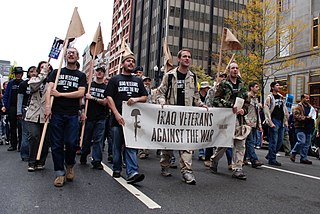
Iraq Veterans Against the War (IVAW) is an advocacy group of formerly active-duty United States military personnel, Iraq War veterans, Afghanistan War veterans, and other veterans who have served since the September 11, 2001 attacks; who were opposed to the U.S. military invasion and occupation in Iraq from 2003 to 2011. The organization advocated the immediate withdrawal of all coalition forces in Iraq, and reparations paid to the Iraqi people. It also provides support services for returning veterans to include health care and mental health.
The Oleo Strut was a GI Coffeehouse located in Killeen, Texas, from 1968 to 1972. Like its namesake, a shock absorber in the landing gear of most large aircraft and many smaller ones, the Oleo Strut’s purpose was to help GIs land softly. Upon returning from Vietnam to Fort Hood, shell-shocked soldiers found solace amongst the Strut’s regulars, mostly fellow soldiers and a few civilian sympathizers. The GIs turned the Oleo Strut into one of Texas’s anti-war headquarters, publishing an underground anti-war newspaper, organizing boycotts, setting up a legal office, and leading peace marches.
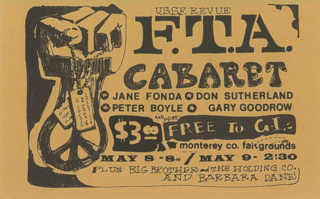
The FTA Show, a play on the common troop expression "Fuck The Army", was a 1971 anti-Vietnam War road show for GIs designed as a response to Bob Hope's patriotic and pro-war USO tour. The idea was first conceived by Howard Levy, an ex-US Army doctor who had just been released from 26 months in Fort Leavenworth military prison for refusing orders to train Green Beret medics on their way to the Vietnam War. Levy convinced actress Jane Fonda who recruited a number of actors, entertainers, musicians and others, including the actors Donald Sutherland, Peter Boyle, Garry Goodrow and Michael Alaimo, comedian and civil rights activist Dick Gregory and soul and R&B singer Swamp Dogg. Alan Myerson, of San Francisco improv comedy group The Committee, agreed to direct, while cartoonist and author Jules Feiffer and playwrights Barbara Garson and Herb Gardner wrote songs and skits for the show. Fred Gardner, the originator of the antiwar GI Coffeehouse movement, became the Tour's "stage manager and liaison to the coffeehouse staffs." At various times other actors, writers, musicians, comedians and entertainers were involved. The United States Servicemen's Fund (USSF), with Dr. Levy as one of its principal organizers, became the official sponsor of the tour. The anti-Vietnam War USSF promoted free speech within the US military, funded and supported independent GI newspapers and coffeehouses, and worked to defend the legal rights of GIs. Sponsorship was later taken over by a group called the Entertainment Industry for Peace & Justice (EIPJ).
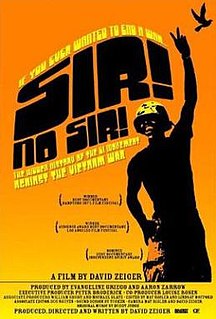
Sir! No Sir! is a 2005 documentary by Displaced Films about the anti-war movement within the ranks of the United States Armed Forces during the Vietnam War. The film was produced, directed, and written by David Zeiger. The film had a theatrical run in 80 cities throughout the U.S. and Canada in 2006, and was broadcast worldwide on: Sundance Channel, Discovery Channel, BBC, ARTE France, ABC Australia, SBC Spain, ZDF Germany, YLE Finland, RT, and several others.

The Clover Park School District (CPSD) is the fourth largest school district in Pierce County, Washington, United States, and the 28th largest public school district in the state.
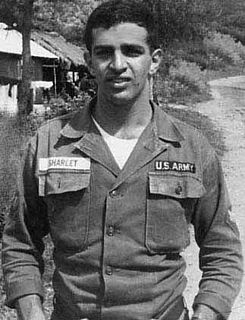
Jeff Sharlet (1942–1969), a Vietnam veteran, was a leader of the GI resistance movement during the Vietnam War and the founding editor of Vietnam GI. David Cortright, a major chronicler of the Vietnam GI protest movement wrote, "Vietnam GI, the most influential early paper, surfaced at the end of 1967, distributed to tens of thousands of GIs, many in Vietnam, closed down after the death of founder Jeff Sharlet in June, 1969."
David Cline was an American anti-war and veterans rights activist. He was best known as National President of Veterans For Peace (VFP) from 2000 to 2006, Chapter Vice President of Alan Reilly - Gene Glazer VFP Chapter 21, and co-founder of the Vietnam Agent Orange Relief and Responsibility Campaign. Cline was featured in the 2006 film Sir! No Sir!, which documented the GI antiwar movement during the Vietnam war as well as in the book "Winter Soldiers: An Oral History of Vietnam Veterans Against the War" by Richard Stacewicz.
The Shelter Half was a GI Coffeehouse that operated at 5437 South Tacoma Way, in Tacoma, Washington, United States, from 1968 to 1974. Named after a military tent called a Shelter-half, the coffeehouse's purpose was to provide a place for GIs at Fort Lewis military base in Washington State to resist the war in Vietnam. The Shelter Half served as an anti-war headquarters, publishing underground anti-war newspapers, organizing boycotts, connecting civilian activists with local GIs, and leading peace marches.
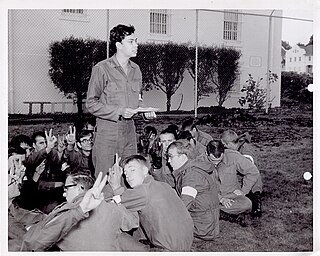
The Presidio mutiny, one of the earliest instances of significant internal military resistance to the Vietnam War, was a sit-down protest carried out by 27 prisoners at the Presidio stockade in San Francisco, California on October 14, 1968. The stiff sentences given out at court martials for the participants attracted international attention to the extent of sentiment against the war within the U.S. armed forces and the mutiny became "[p]erhaps the single best known event of the domestic GI movement".
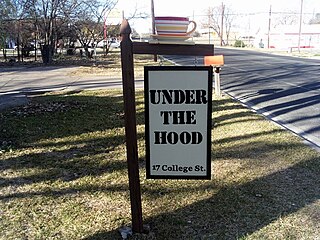
Under the Hood Café was a coffee house located at 17 South College Street in Killeen, Texas. It provided services for soldiers located at Fort Hood, one of the largest American military installation in the world. Under the Hood Café was first managed by Cynthia Thomas,
Andrew Dean Stapp was an American activist known for forming the American Servicemen's Union, an unofficial union for the U.S. military, in opposition to the Vietnam War.

GI's Against Fascism was a small but formative organization formed within the U.S. Navy during the years of conscription and the Vietnam War. The group developed in mid-1969 out of a number of sailors requesting adequate quarters, but coalesced into a formal organization with a wider agenda: a more generalized opposition to the war and to perceived institutionalized racism within the U.S. Navy. Although there had been earlier antiwar and GI resistance groups within the U.S. Army during the Vietnam era, 'GI's Against Fascism' was the first such group in the U.S. Navy. The group published an underground newspaper called Duck Power as a means of spreading its views.
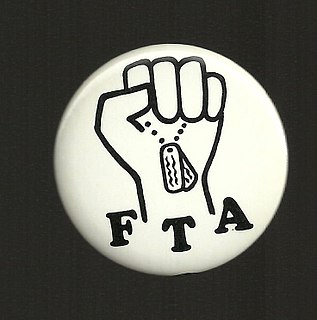
The Movement for a Democratic Military (MDM) was an antiwar and GI rights organization during the Vietnam War. Initially formed in late 1969 as a merger of sailors from San Diego and marines from the Camp Pendleton Marine Base in Oceanside, CA, it rapidly spread to a number of other cities and bases in California and the mid-West, including San Francisco, Long Beach Naval Station, El Toro Marine Air Station, Fort Ord, Fort Carson and the Great Lakes Naval Training Center. Heavily influenced by the Black Panther Party and the Black militancy of the times., it became one of the more radical GI organizations during that era and was investigated in 1971 by the House Committee on Internal Security.

GI coffeehouses were a consequential part of the anti-war movement during the Vietnam War era, particularly the resistance to the war within the U.S. military. They were mainly organized by civilian anti-war activists as a method of supporting antiwar and anti-military sentiment among GIs, but many GIs participated as well. They were created in numerous cities and towns near U.S. military bases throughout the U.S as well as Germany and Japan. Due to the normal high turnover rate of GIs at military bases plus the military's response which often involved transfer, discharge and demotion, not to mention the hostility of the pro-military towns where many coffeehouses were located, most of them were short-lived, but a few survived for several years and "contributed to some of the GI movement's most significant actions". The first GI coffeehouse of the Vietnam era was set up in January 1968 and the last closed in 1974. There have been a few additional coffeehouses created during the U.S. led wars in Iraq and Afghanistan.

Waging Peace in Vietnam: U.S. Soldiers and Veterans Who Opposed the War is a non-fiction book edited by Ron Carver, David Cortright, and Barbara Doherty. It was published in September 2019 by New Village Press and is distributed by New York University Press.
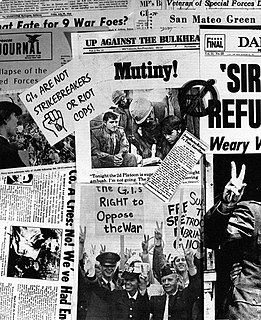
The G.I. movement was the resistance to military involvement in the Vietnam War from active duty soldiers in the United States military. Within the military popular forms of resistance included combat refusals, fragging, and desertion. By the end of the war at least 450 officers were killed in fraggings, or about 250 from 1969–1971, over 300 refused to engage in combat and approximately 50,000 American servicemen deserted. Along with resistance inside the U.S. military, civilians opened up various G.I. coffeehouses near military bases where civilians could meet with soldiers and could discuss and cooperate in the anti-war movement.
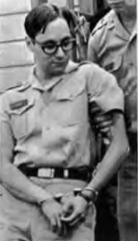
The court-martial of Howard Levy occurred in 1967. Howard Levy was a United States Army doctor who became an early resister to the Vietnam War. In 1967, he was court-martialed at Fort Jackson, South Carolina, for refusing an order to train Green Beret medics on their way to Vietnam. He said it "became clear to me that the Army [was using medics] to 'win hearts and minds' in Vietnamese villages - while still burning them to the ground in search-and-destroy missions." He considered the Special Forces "killers of peasants and murderers of women and children".
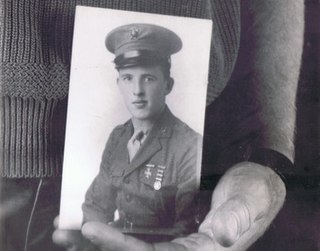
A Matter of Conscience: GI Resistance During the Vietnam War is an artist book published in 1992 at the time of the Addison Gallery of American Art exhibition, “A Matter of Conscience” and “Vietnam Revisited.” It contains oral histories of Vietnam era GIs gathered and edited by Willa Seidenberg and William Short and 58 photographs by William Short. Each oral history is complemented by a portrait in which the Vietnam veteran holds an object of some significance such as a newspaper clipping, a legal document, a book, or photograph. The large black and white photographs allow readers to see the veteran while reading the brief but moving oral histories to learn why they turned against the Vietnam War. The veterans' stories and portraits were collected over a five-year period and have been exhibited throughout the United States, Vietnam, Japan and Australia. A number of them were also included in the book Waging Peace in Vietnam: U.S. Soldiers and Veterans Who Opposed the War edited by Ron Carver, David Cortright, and Barbara Doherty. It was published in September 2019 by New Village Press.
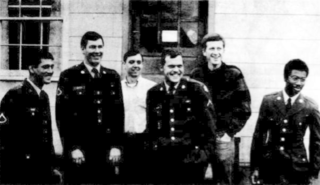
The Fort Lewis Six were six U.S. Army enlisted men at the Fort Lewis Army base in the Seattle and Tacoma, Washington area who in June 1970 refused orders to the Vietnam War and were then courts-martialed. They had all applied for conscientious objector status and been turned down by the Pentagon. The Army then ordered them to report for assignment to Vietnam, which they all refused. The Army responded by charging them with "willful disobedience" which carried a maximum penalty of five years at hard labor. The six soldiers were Private First Class Manuel Perez, a Cuban refugee; Private First Class Paul A. Forest, a British citizen from Liverpool; Specialist 4 Carl M. Dix Jr. from Baltimore; Private James B. Allen from Goldsboro, North Carolina; Private First Class Lawrence Galgano from Brooklyn, New York; and Private First Class Jeffrey C. Griffith from Vaughn, Washington. According to the local GI underground newspaper at Fort Lewis, this was the largest mass refusal of direct orders to Vietnam at the base up to that point in the war. Their refusal and subsequent treatment by the Army received national press coverage.
References
- ↑ "About | Coffee Strong". Archived from the original on 2014-05-20. Retrieved 2010-11-10.
- ↑ "Grounds for Resistance". Grounds for Resistance.
- ↑ "'Grounds for Resistance': Documentary focuses on Lakewood coffee shop just outside JBLM | Lakewood - the News Tribune". Archived from the original on 2012-09-08. Retrieved 2011-05-15.